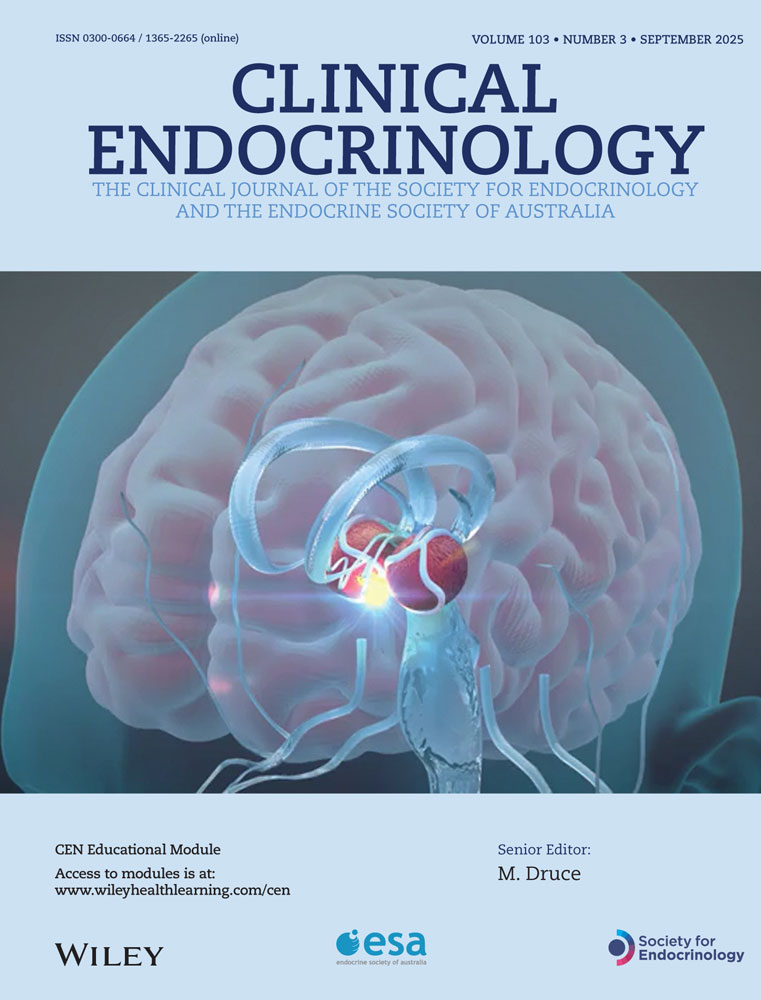Plasma homocysteine is not a major risk factor for vascular disease in growth hormone deficient adults
Abstract
OBJECTIVE Several cardiovascular risk factors have been investigated in patients with adult growth hormone deficiency (GHD) to explain the observed increase in vascular mortality. Plasma homocysteine concentration has been identified recently as an independent risk factor for atherosclerosis. We wished to determine whether plasma homocysteine contributes to cardiovascular risk in adult GHD.
METHOD Plasma homocysteine was measured by fluorescence polarization immunoassay in 45 GH-deficient adults on stable conventional hormone replacement (25M, 20F), age range 23–76 years, and compared with 55 matched controls (30M, 25F), age range 21–77 years. All subjects were free from clinical hypertension, diabetes, ischaemic heart disease and peripheral vascular disease. Blood pressure, body mass index and waist hip ratio were recorded. Serum creatinine and fasting lipids were measured. Serum vitamin B12 and folate levels, important cofactors in the homocysteine metabolic pathways, were also measured.
RESULTS Homocysteine levels were not different in patients and controls (9·75 [7·8–11·6]μmol/l vs. 9·65 [8·3–11·5]μmol/l, respectively, P = 0·88). Serum vitamin B12 was also not different (320·5 [262·0–427·5] pmol/l vs. 313·5 [277·0–460·5] pmol/l, respectively, P = 0·77). Serum folate levels were significantly lower in the patient group (7·05 [5·12–8·27] ng/ml vs. 7·80 [6·52–10·60] ng/ml, respectively, P = 0·03). When separated by gender, in males folate was not significantly different between patients and controls 7·05 [5·17–9·19]vs. 7·65 [6·15–10·22], P = 0·264, whereas in females, folate was significantly lower in patients at 7·05 [4·57–7·75] compared to controls at 8·4 [6·60–12·20], P = 0·01.
CONCLUSION Plasma homocysteine levels are not significantly elevated in GH-deficient adults and are unlikely to be a major risk factor for vascular disease in these individuals.




